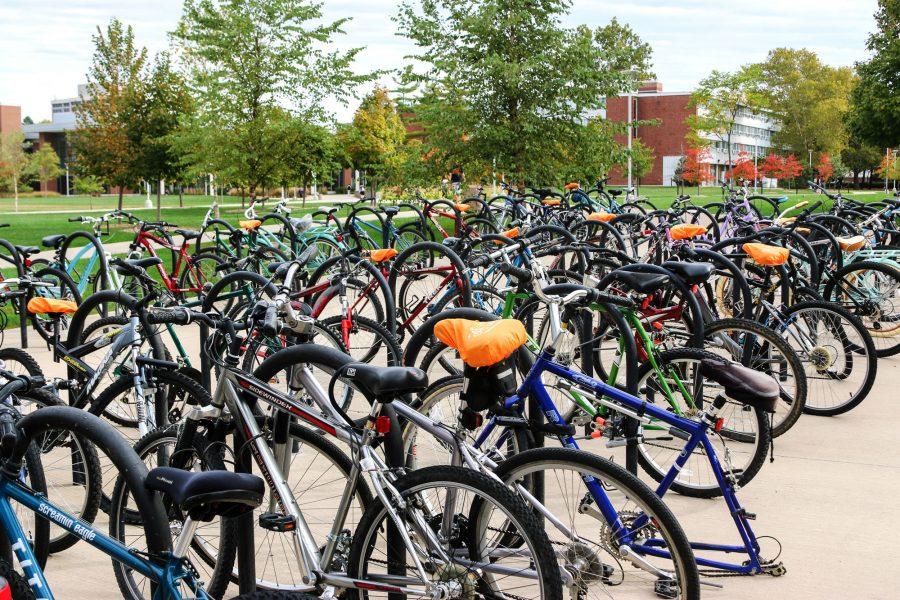University conducts bicycle census
Bicycles are locked up outside Hopkins Hall on October 19th, 2016, which marks the biannual Campus Bicycle Census where volunteers count all of the bicycles on campus.
Oct 19, 2016
The Campus Bike Center held its Biannual Campus Bicycle Census on Oct. 12. The data collected during the activity will be sent to the University staff to help shape bicycle policy and infrastructure for the future.
To conduct the census, a group of volunteers counted the bicycles across campus for one hour.
“We will be disseminating throughout the campus to count as many bikes as we can within that hour to give us a better picture of how many bikes are on campus and how many people ride,” said Jake Benjamin, manager of the Campus Bike Center.
Lily Wilcock, the active transportation coordinator of the Facilities and Services at the University, said there were 13 volunteers involved in this census.
Across the University, a lot of facilities that accommodate bikes are setup with reference to the data gathered from the census. The number of bike racks put in front of certain buildings is one of the most common applications of the data.
Get The Daily Illini in your inbox!
“It really, really helps in determining how much bike parking we’re gonna need on campus and how many people park where they do and where they ride,” Benjamin said.
Compared to the census taken in the past few years, there were improvements made this year. The volunteers used a smartphone app to collect data rather than using a paper counting map like before.
“In prior years, they just spent all day and it’s been an all-day activity. But now it’s going to be condensed more and this could be more efficient to be able to do it over smart phone using an app,” Benjamin said.
Raymond Bizot, a volunteer and junior in ACES, said he wanted to contribute to the bicycle scene on campus.
“I think that resources for bikers on campus are important and I think that biking should be encouraged,” Bizot said. “So I want to help them get some information that might help for making decisions that are pro-biking.”
The Campus Bike Center is a non-profit organization that aims to promote and support bicycling within the University. The center provides tools and knowledgeable staff to assist people in learning how to fix bicycles.
“You can bring your own bike to go in, and I and my staff will help you diagnose and fix whatever is wrong with your bike and make it run more smoothly,” said Benjamin. “We provide resources, books and parts, something like that to fix up the bike.”






